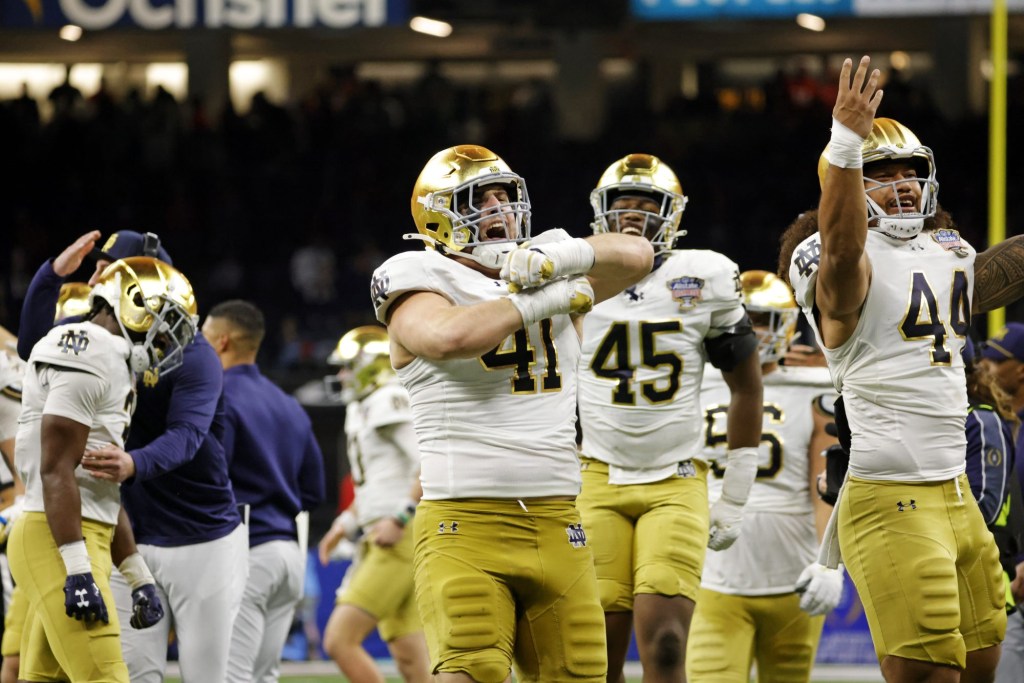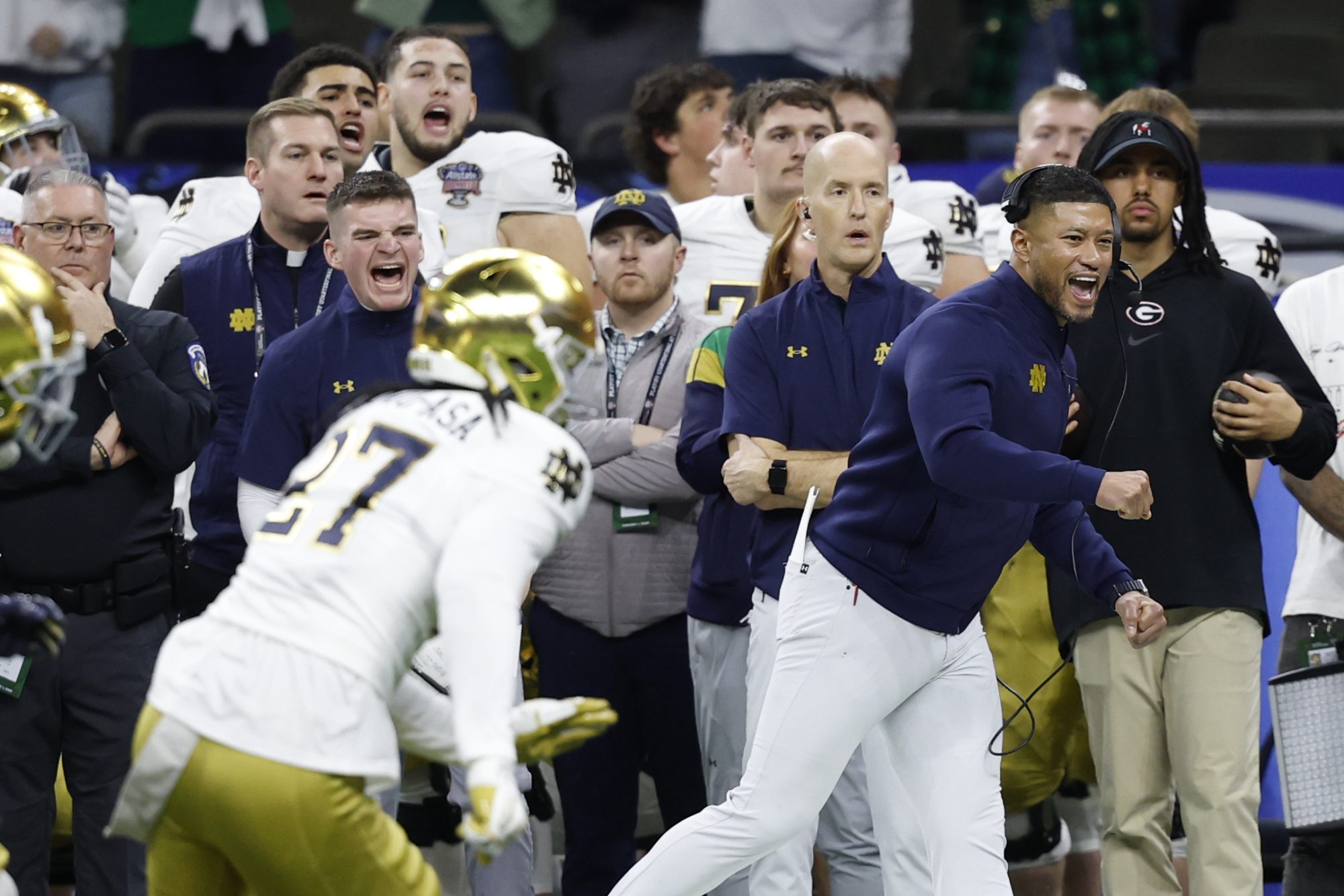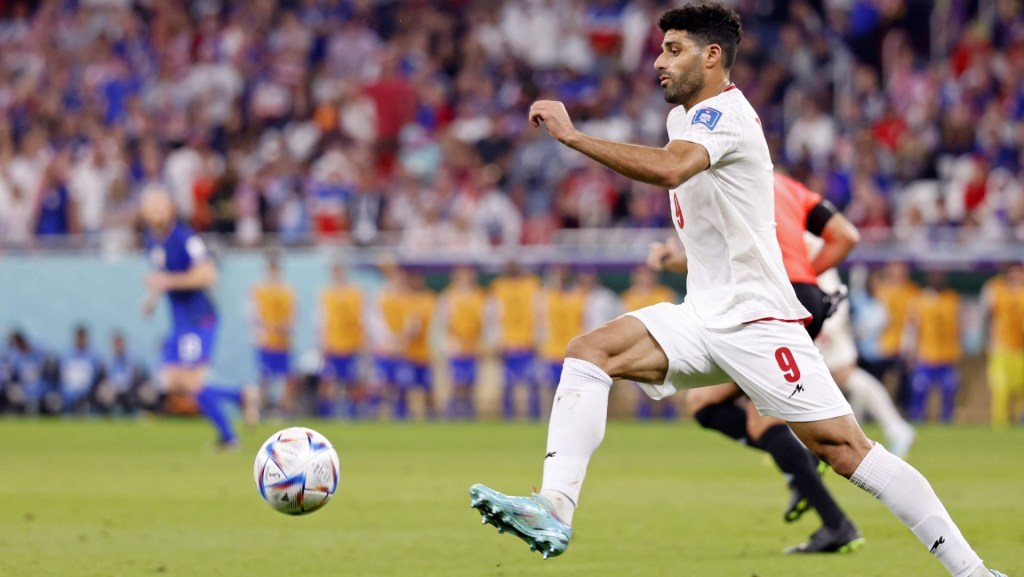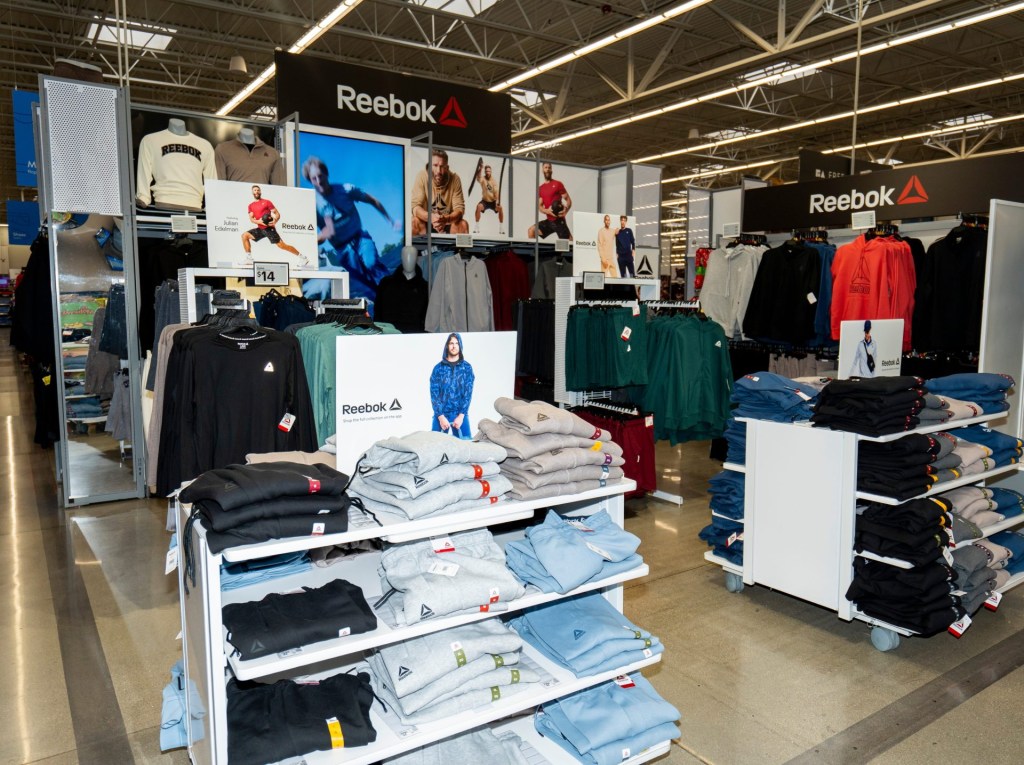Notre Dame athletic director Pete Bevacqua was justifiably excited before the Fighting Irish’s opening-round College Football Playoff game against Indiana.
“This is the biggest thing we can do at this point, is host a game,” he said. “Particularly in our spot, not being in a conference and being independent—which is something we’re tremendously proud of.”
For their entire 100-plus year existence, the Fighting Irish have eschewed conference affiliation—a decision that has looked increasingly questionable over the past several years. The team had failed to earn a CFP win and was in jeopardy of falling behind power conference schools financially after another seismic round of realignment and media deals. Industry experts wondered whether the team’s stubbornness hadn’t cost them in the new era of college sports.
But, after making the expanded Playoff and reeling off consecutive wins, Notre Dame appears to have vindicated its unique strategy.
Led by new head coach Marcus Freeman, the Fighting Irish are about to play in the first-ever semifinal round of the 12-team Playoff. They’ve earned $14 million in CFP prize money so far and have the chance to earn at least $6 million more if they beat Penn State—whose coach just yesterday criticized the Fighting Irish’s independent status.
For decades, the strategy was considered a cash cow: The athletic department had an exclusive football contract with NBC and the ability to slot itself into matchups that maintained its national footprint and propelled it to multiple titles.
But over the last 10 years, it was fair to wonder whether the athletic department’s independent status was becoming more of a hindrance than an advantage.
The Irish made the four-team CFP only twice and failed to advance to the national title game. Head coach Brian Kelly abruptly left for LSU in November 2021 after 12 seasons. Defensive coordinator Marcus Freeman took over the head coaching position, and he led the Irish to two consecutive winning seasons—though they were never good enough to make the four-team slate.

As a result, Notre Dame lost out on multimillion-dollar CFP prize money payouts that, unlike most schools who are required to share Playoff spoils with conferences, it could’ve kept. In 2023, for example, it received $3.98 million for meeting the NCAA’s postseason academic standards, but it wasn’t eligible for bonuses for making the CFP or advancing to the national championship.
Conference realignment also cast doubt over the Irish’s strategy.
But the Big Ten had inked the most lucrative media contract in conference history—a mid-$7 billion package that would allow schools to earn conference distributions of up to $90 million per year. Part of the value came from realignment: The league had already announced it would welcome USC and UCLA in 2024. The SEC, which had added Oklahoma and Texas, wasn’t far behind. Even the Big 12 and ACC had guaranteed futures in which annual distributions would easily surpass $30 million per year.
The Fighting Irish were among the top earners in 2023, raking in around $224 million. Between their deal with NBC (about $22 million per year) and their affiliation with the ACC (about $22 million) for Olympic sports, they notched some of the highest conference distributions.
But they risked falling behind.
To remain independent, the school needed a “committed broadcast partner,” a pathway to the CFP, and a high-quality, travel-friendly Olympic sports conference.
Under the current 12-team format, automatic bids go to the top five conference champions. But as long as the team ranked somewhere in the next seven at-large bids, it would have a Playoff opportunity. And if the Fighting Irish couldn’t secure a lucrative new media deal, they’d have to consider either joining the ACC or perhaps making a bid to look at the Big Ten.
But the school never lost faith in its independent model. “We haven’t flinched,” Aaron Horvath, Notre Dame’s senior associate athletics director, told Front Office Sports in the summer of 2023, saying the athletic department would “still adopt the same stance as [an] independent, and what we need to continue to be so.”
Several months later, in November, then-AD Jack Swarbrick was able to secure a renewal with NBC running from 2024 to 2029, a deal that will pay about $50 million per year, FOS reported at the time. The deal doubled the previous fee and ensured the athletic department could remain competitive in the new era—at least from a media-rights standpoint. It was one of his last acts as athletic director—he stepped down in the spring of 2024, allowing Bevacqua, the former NBC executive, to take the wheel.
In the offseason, Notre Dame took advantage of the transfer portal and rebuilt its roster. It has since won 12 straight games, hosted the first-ever on-campus CFP matchup, and earned a spot in the CFP semifinals. As such, the team has a chance to earn up to $20 million in CFP prizes.
The future is bright, too. The NBC media deal is locked in for another six years. The Irish have also signed onto a future CFP with $12 million minimum payments starting in 2026, when the postseason’s next contract with ESPN begins. If they make the 12-team field, they have the chance to earn even more.
In March, Bevacqua told ESPN: “We are now in as good of a position as we’ve ever been in the modern era of college football to be independent.” Now, that position is even better.








![[Subscription Customers Only] Jun 15, 2025; Seattle, Washington, USA; Botafogo owner John Textor inside the stadium before the match during a group stage match of the 2025 FIFA Club World Cup at Lumen Field.](https://frontofficesports.com/wp-content/uploads/2026/02/USATSI_26465842_168416386_lowres-scaled.jpg?quality=100&w=1024)
![[Subscription Customers Only] Jul 13, 2025; East Rutherford, New Jersey, USA; Chelsea FC midfielder Cole Palmer (10) celebrates winning the final of the 2025 FIFA Club World Cup at MetLife Stadium](https://frontofficesports.com/wp-content/uploads/2026/02/USATSI_26636703-scaled-e1770932227605.jpg?quality=100&w=1024)








